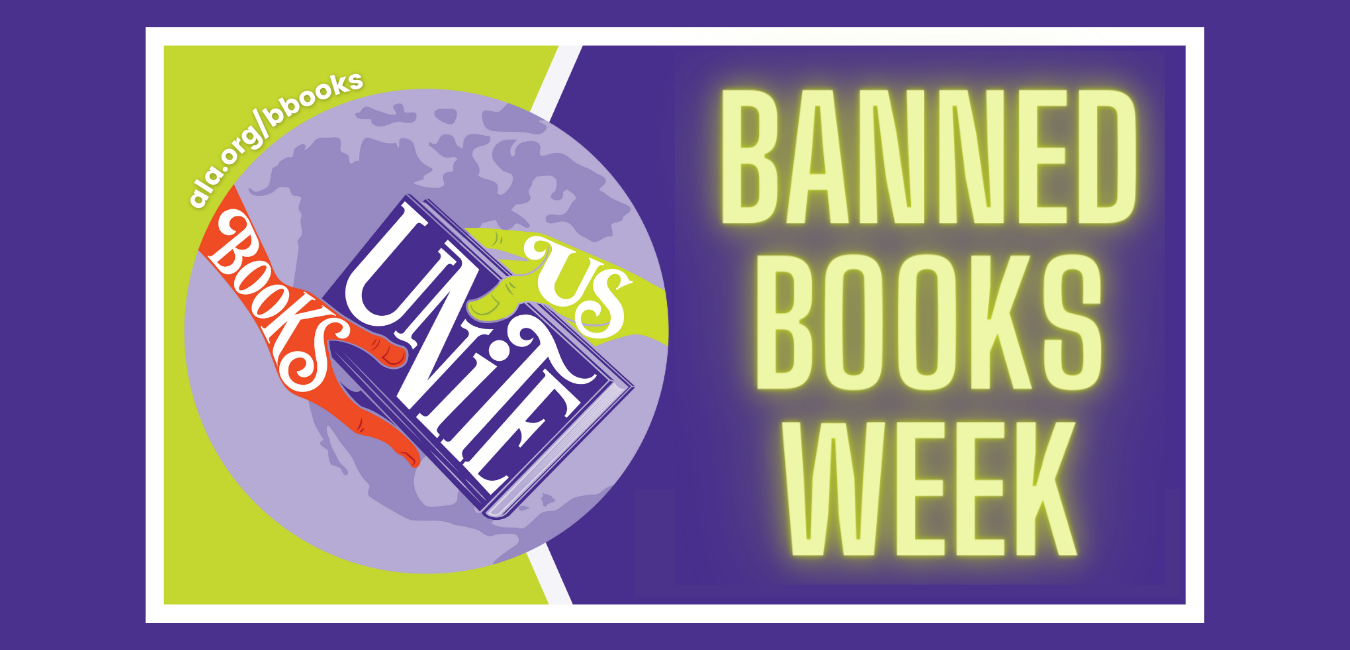Banned Books Week is an annual event that celebrates the freedom to read. After a surge in challenges to books in 1982, and a Supreme Court Case which ruled that school officials can’t ban books in libraries simply because of their content, Banned Books Week was launched. Freedom and access to information are the two main goals of this week. We believe that all ideas, no matter how unorthodox, are important and deserve to be heard.
Books have the ability to unite us and bring us all together, while censorship can divide us and create barriers between us. Banned Books Week gives everyone in the book community; librarians, booksellers, publishers, writers, and readers, the opportunity to come together and celebrate books of all kinds.
Here are some of the books that have been most frequently challenged, and the reasons for the challenges. All on this list are available for checkout from our library. But be careful, some people might find these books dangerous!
The Absolutely True Diary of a Part-Time Indian by Sherman Alexie: Banned and challenged for profanity, sexual references, and allegations of sexual misconduct by the author
And Tango Makes Three by Justin Richardson: challenged and relocated for LGBTQIA+ content
All American Boys by Brendan Kiely and Jason Reynolds: Banned and challenged for profanity, drug use, and alcoholism, and because it was thought to promote anti-police views, contain divisive topics, and be “too much of a sensitive matter right now”
The Bluest Eye by Toni Morrison: Banned and challenged because it was considered sexually explicit and depicts child sexual abuse
The Hate U Give by Angie Thomas: Challenged for profanity, and it was thought to promote an anti-police message
Of Mice and Men by John Steinbeck: Banned and challenged for racial slurs and racist stereotypes, and their negative effect on students
Speak by Laurie Halse Anderson: Banned, challenged, and restricted because it was thought to contain a political viewpoint and it was claimed to be biased against male students, and for the novel’s inclusion of sexual content and profanity
Stamped by Jason Reynolds: Banned and challenged because of author’s public statements, and because of claims that the book contains “selective storytelling incidents” and does not encompass racism against all people
To Kill a Mockingbird by Harper Lee: Banned and challenged for racial slurs and their negative effect on students, featuring a “white savior” character, and its perception of the Black experience
Slaughterhouse-Five by Kurt Vonnegut: Banned and challenged because it contains and makes references to religious matter, and also contains foul language and promotes deviant sexual behavior

